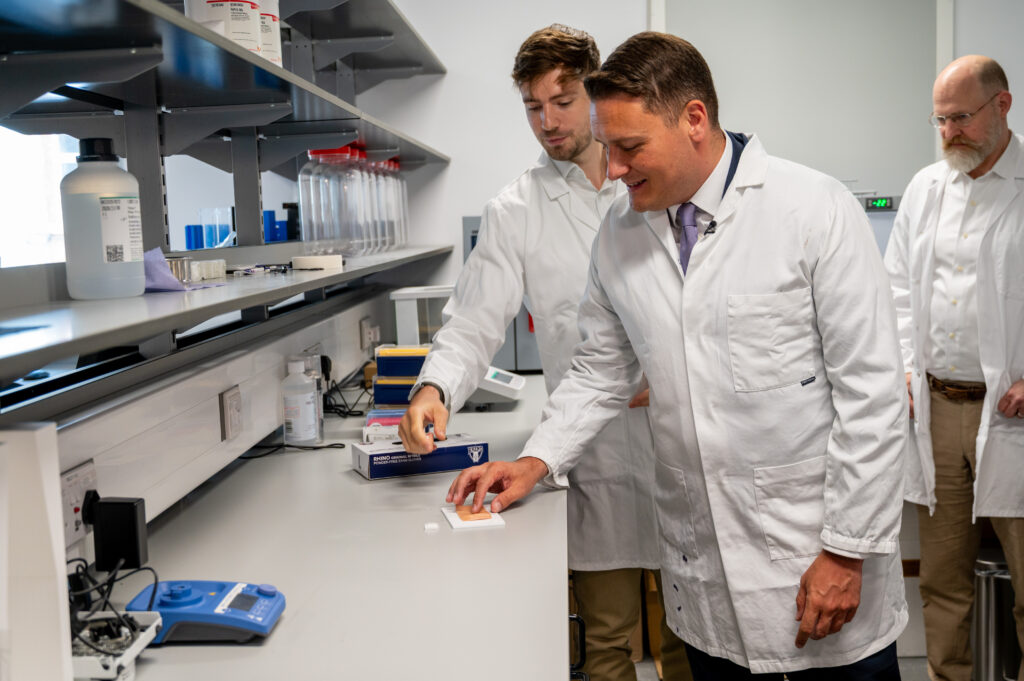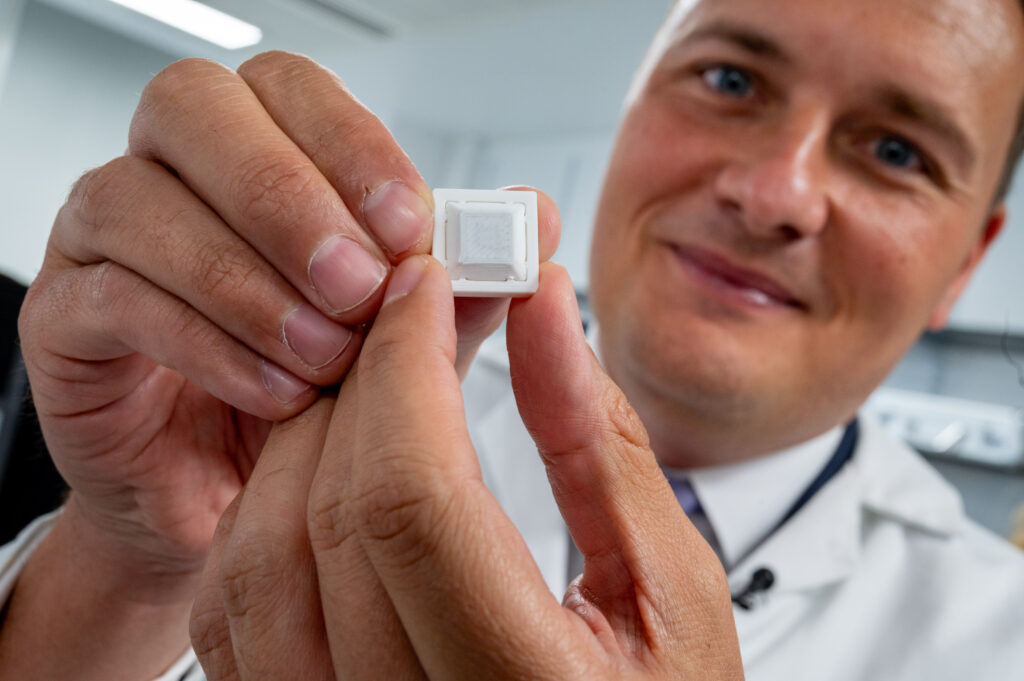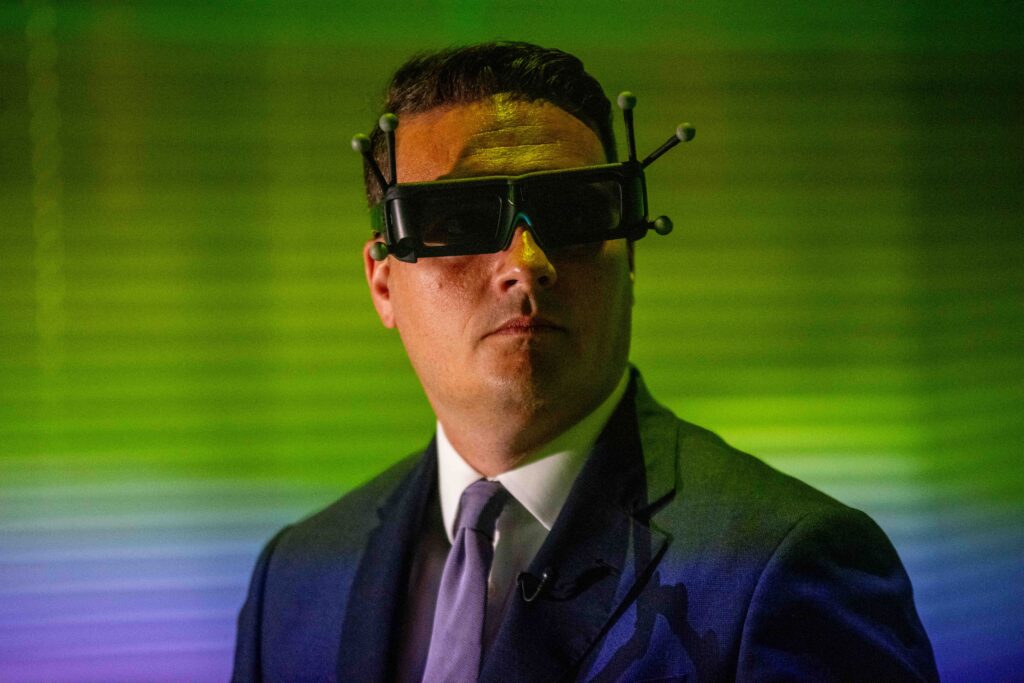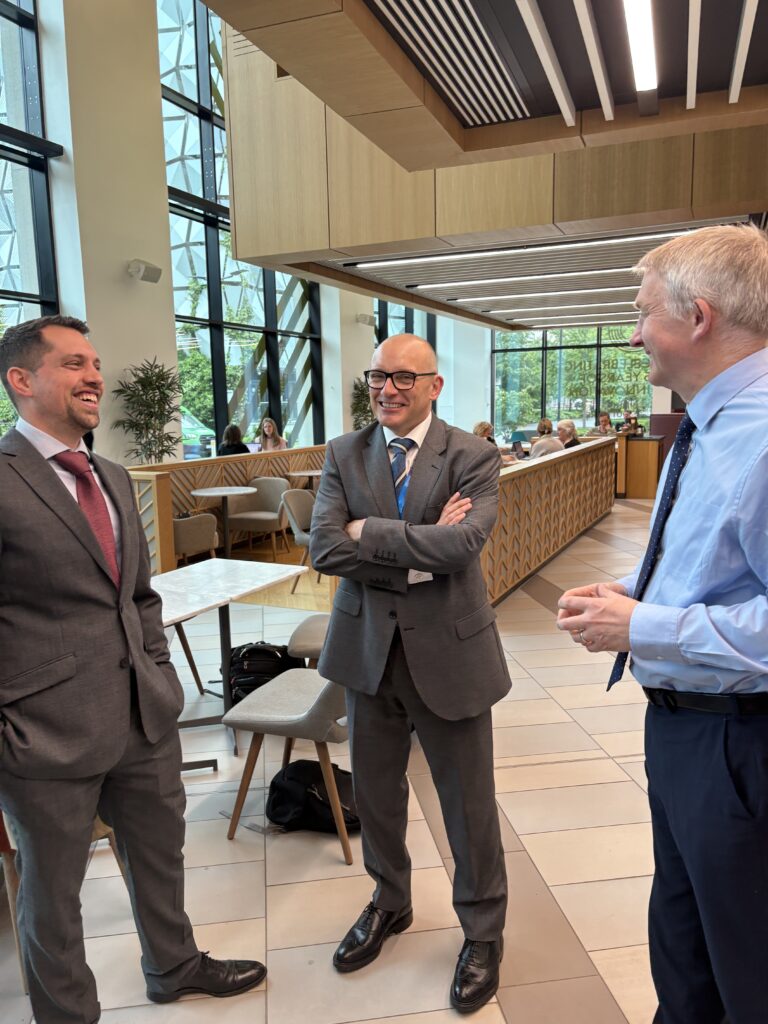A partnership of the city’s senior leaders welcomed the Secretary of State for Health and Social Care, Wes Streeting, to innovation hub Nexus this week.
The MP took part in a panel discussion with representatives from organisations including Leeds City Council, Leeds Teaching Hospitals NHS Trust, University of Leeds, Leeds Beckett University and the West Yorkshire Integrated Care Board (ICB).
As part of the roundtable, partners revealed what makes the city a standout location for business and top talent to thrive. This included an announcement from the Secretary of State for Health and Social Care that a new digital hub in Leeds city centre, launched by the Government agency the Medicines and Healthcare products Regulatory Agency (MHRA), would bring regulation to the place of innovation.
“There is a global tech revolution in healthcare unfolding, and Yorkshire will help our country lead it,” said Mr Streeting, Secretary of State for Health and Social Care.
“Driving forward digital transformations like these through our Plan for Change will mean scientists get data for research quicker, inspectors can develop tech to spot problems quicker, and patients get better results.
“As a healthcare innovation powerhouse, Leeds is the perfect place to bring together the Medicines and Healthcare products Regulatory Agency’s regulatory expertise with a thriving tech community, world-class universities, and strong NHS presence.”

Members of the discussion panel included Tracy Brabin, Mayor of West Yorkshire; Katie White, MP for Leeds North West; Councillor James Lewis, Leader of Leeds City Council; Kate Lodge, Partnership Director, Leeds Academic Health Partnership; Magnus Harrison, Chief Medical Officer, Leeds Teaching Hospitals NHS Trust; Richard Stubbs, Chief Executive, Health Innovation Yorkshire and Humber and Chair of the national Health Innovation Network; and Maddie Julian, CEO of DigiBete, a ‘made in Leeds’ success story transforming care for children across the UK and worldwide.
Panel chair Professor Shearer West, Vice-Chancellor and President of the University of Leeds, said: “Leeds is undoubtedly at the forefront of digital healthcare innovation.
“By continuing to build our expertise in this sector, we can make significant and lasting impact in health provision for both our region and nationally.
“It’s vital that our work, in collaboration with partners including the NHS Trust and Leeds Academic Health Partnership, results in tangible health benefits that improve people’s lives.”
Reflecting the city’s strong culture of cross-sector partnership and collaboration, Leeds Academic Health Partnership is one of the biggest of its kind in the UK, uniting health, care and academic partners to help solve some of the hardest health challenges, transforming health and care – locally and globally, and especially for those most in need.
Director of Leeds Academic Health Partnership, Kate Lodge, explained why the UK’s third largest city is an ideal location for the new digital hub: “Leeds ranks third internationally as a centre for healthtech innovation, and the Government move to launch a new MHRA hub in the city recognises, and builds upon, our globally-leading strengths in data, digital and AI.
“Our health innovation ecosystem – represented by Health Innovation Leeds – is one of the most interconnected in the UK.
“Today’s roundtable discussion – attended by partners from academia, healthcare, local council and business – was a powerful example of the radical collaboration that enables Leeds to go further faster in transforming health and care for everyone.”
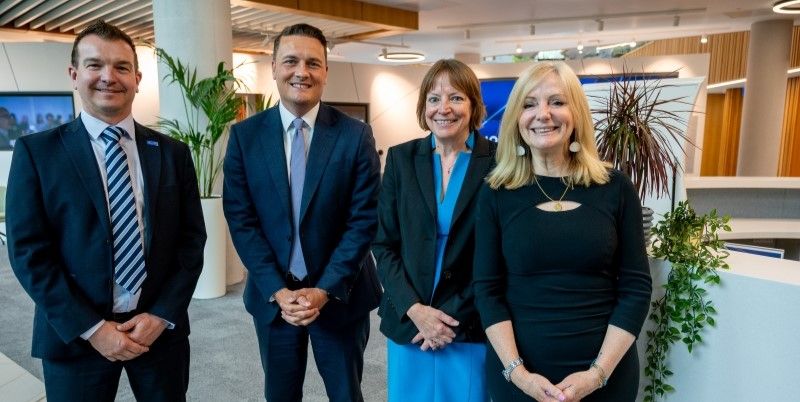
Leeds is the UK’s third largest city, and its £2 billion Innovation Arc is home to some of the biggest public and private sector organisations in the North of England.
The new MHRA digital hub will be located in the city centre, building on Leeds’ strong and established approach of co-locating cutting edge academic research, world-leading clinical expertise and a global community of entrepreneurial businesses.
Tracy Brabin, Mayor of West Yorkshire said, “West Yorkshire continues to produce world-leading medical and technological advancements, and working with the University of Leeds, Leeds Teaching Hospitals NHS Trust and other partners, we will unlock the immense potential within our life sciences sector to improve lives and boost growth.”
Dr Magnus Harrison, Chief Medical Officer at Leeds Teaching Hospitals NHS Trust, opened the panel discussion, outlining the city’s vision for neighbourhood health: “In Leeds, we’re tackling some of the hardest health challenges with a whole-city approach, where we work together across organisations and sectors, with local people at the heart of everything we do.
“Leeds Teaching Hospitals NHS Trust is one of the largest in the UK, and our world-leading work is rooted in reality. Together with partners, we’re using data to identify and address tomorrow’s challenges, today. This means we can better treat or prevent disease, reduce health inequalities, and support people at home or in their communities.
“As a city, we have the vision, ambition and ability to transform health and care. The new MHRA hub will help us realise these ambitions, making it even easier to innovate in Leeds, and ultimately to make a real difference to people’s lives – locally, nationally and across the world.”
Find out more about Leeds as a health innovation powerhouse – a city which welcomes and supports businesses and innovators to succeed: https://healthinnovationleeds.com/
Headline image: Health Secretary, Wes Streeting meets the founders of Microneedle Solutions, which are led by former University of Leeds biotechnology students who developed self-adhesive patches containing microscopic vaccine needles.
